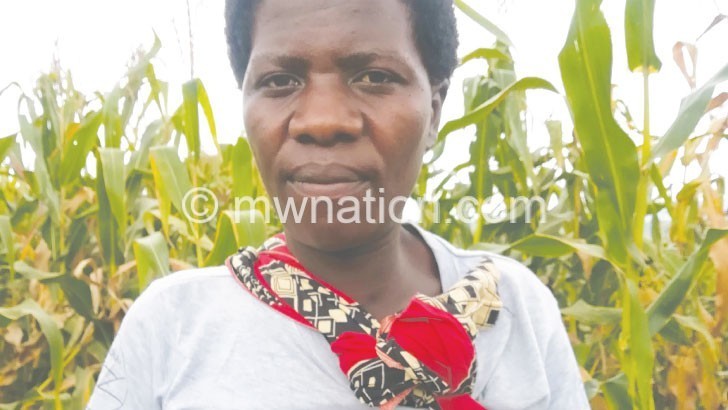Gender parity on the farm
Catherine Mkandawire, 33, is a breadwinner of her family.
The mother-of-four cultivates on a four-acre tobacco field in Henga Valley singlehandedly.
“I do all the farm chores, but it is my husband who pockets all the money from tobacco sales,” she says.

Mkandawire also grows maize for food. Despite her toil, she says she reaps no benefit from the country’s green gold.
“Just last year, my husband disappeared after selling tobacco at Mzuzu Floors, only to reappear empty-handed a month later. I fear he might disappear again this year. I can’t control him because the land belongs to him. I have no land,” she laments.
Many women in Malawi have no say over proceeds of farming though they do the donkey work.
The prevailing way of life puts men at the centre of decision-making. The male-dominated culture is pronounced in Rumphi and Mzimba where women seldom own land though they constitute up to 80 percent of the agricultural workforce.
This means women will continue being the most affected gender as yields keep falling due to population growth and disasters fuelled by climate change, says Centre for Environmental Policy and Advocacy (Cepa) executive director William Chadza,
He explains: “Studies have shown that women suffer the worst effects of climate change, especially those which relate to agricultural practices, food security and nutrition.
“Women are pivotal in ensuring that food is readily available for the household, so with increasing effects of climate change they are greatly affected by the burden,” he says.
According to Rumphi District Council gender officer Joshua Luhana, women face food insecurity and gender-based violence due to power imbalance in the agricultural value chain.
“To address food insecurity and gender-based violence at household levels, women need to have knowledge, skills and higher participation in decision-making in agriculture value chain and climate change action,” he says.
Recently, farmers in Malawi have been hit hard by dwindling yield due to drought, floods and other extreme weather shocks. Apart from climate change, other setbacks include land degradation and population boom.
Despite these drawbacks, national policies support the empowerment of both men and women in all spheres of life, including on the farm.
Both the National Agriculture Policy and National Irrigation Policy provides for equal participation and status of men and women in the push to increase agricultural production, incomes and livelihoods.
The policy statement is in line with the national gender and climate change policies.
Government is running a five-year programme in six districts to entrench gender issues into national policies while enhancing women’s participation in decision making processes.
The Ministry of Gender, Children, Disability and Social Welfare is implementing the Gender, Climate Change and Agriculture Support Programme in partnership with Ministry of Agriculture, Irrigation and Water Development and four non-governmental organisations.
According to head of gender mainstreaming division Joseph Kazima, the New Partnership for Africa’s Development (Nepad) is bankrolling the project to the tune of $13.3 million (about K9.9 billion).
“Results from the pilot project will inform government’s plans to expand the project to all 28 districts with the aim of promoting gender equality and equity as a vehicle to achieving sustainable food security,” he says.
The project seeks to ensure effective and equitable participation of women smallholder farmers, the youth and other vulnerable groups in climate-smart agricultural practices.
Climate-smart agriculture encourage farmers to use tillage-free technique farming methods to harvest more, conserve water and protect soils.
“We want to strengthen the capacity of these vulnerable groups to derive more benefits from engaging in climate-smart agricultural practices and to better cope with climate variability.”
In Mzimba, Susan Jere, 45, has a similar story to Mkandawire’s hardship.
She recounts that her polygamous husband has split “his customary land” between his two wives, but does none of the farm work.
“He told us to use the four hectares to support our children. He comes to our homes to eat though he doesn’t do any farming,” she says.
In 2016, Parliament enacted new land laws to give women the power to own land and use it to their benefit.
The laws faced some resistance from some chiefs, with some village heads in Mzimba banishing Land Network (Land Net) activists from sensitising women in Mzimba to the benefits of equal access to land.
However, their counterpart in Phalombe, where Oxfam worked with local authorities to establish land committees in line with the Customary Land Act, says giving women a grip on land is central to ending hunger and poverty.
“If you give a woman land, the whole family wins. They usually use it to the benefit of the whole family,” says group village Maoni in Traditional Authority Nazombe.





